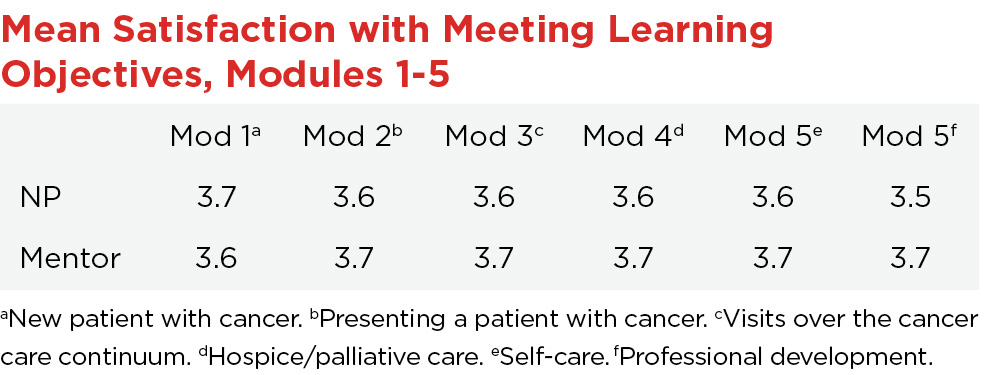Abstract
Background: The Oncology Nurse Practitioner Web Education Resource (ONc-PoWER) is an online course developed by Margaret Rosenzweig, PhD, FNP-BC, AOCNP, from the University of Pittsburgh School of Nursing and funded by the National Cancer Institute (1 R25 CA148050-01A1). The course is designed specifically for Nurse Practitioners (NPs) in their first year of oncology practice paired with an on-site mentor (physician, nurse practitioner or physician assistant). Based on the Oncology Nursing Society’s Competencies for Entry to Practice, the course consists of 5 interactive modules: 1) the new patient visit 2) presenting a patient with cancer 3) cancer visits across the continuum of care 4) palliative and hospice care and 5) self-care and professional development. The purpose of this study was to examine to what degree the learning objectives were met; the NPs and Mentors comments about content learned and areas for course improvement were evaluated.
Method: NPs and mentors completed the course over 4–6 months then completed a course evaluation. There are 6 items on the course evaluation with Likert scaled responses of 1) did not meet objective 2) somewhat met objective 3) met objective 4) more than met objective 5) exceeded objective expectation. Results: Enrollment is ongoing. Thirty NPs new to practice and 22 oncology mentors have completed evaluations thus far. Responses overall are favorable.

Conclusion: The ONc-PoWER web enhanced oncology orientation program was favorably evaluated by nurse practitioners new to cancer care and their mentors. Areas most often identified by the novice NPs as new content learned were using National Comprehensive Cancer Network (NCCN) guidelines for practice and “how to organize a new patient visit.” Areas for improvement were identified as the need for more complex information overall, more specific information regarding malignancies and more in depth information regarding (chemotherapy/treatment) side effects and oncologic emergencies. This method of electronic orientation could standardize the exposure of essential basic cancer care competencies at entry to oncology NP practice.







